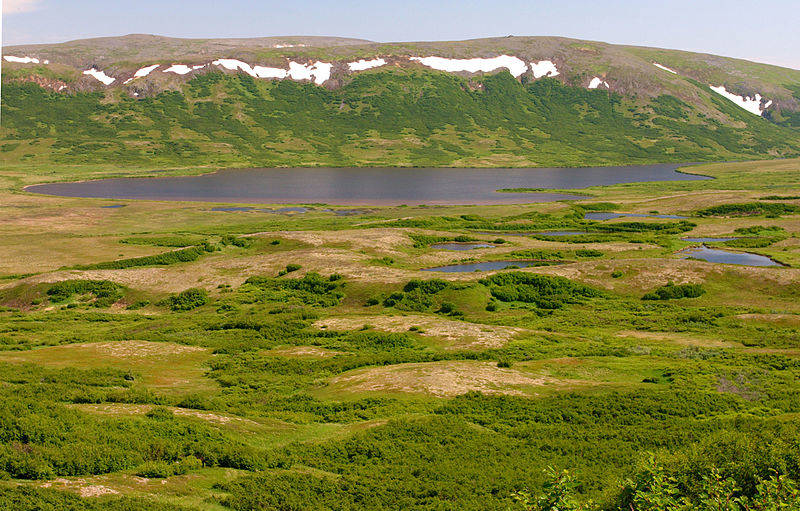The Pebble Mine is a welfare queen, unable to support itself. The Pebble Mine will gobble taxpayer handouts faster and more voraciously than 10,000 food stamp recipients or 10,000 Medicaid beneficiaries. Ambler Mine and the Donlin Gold Mine are the same. If you believe in free markets then you must be appalled by modern metals mines, which reap massive private profit while socializing the risk.
Alaska is seeing renewed interest in enormous, open-pit metals mines. There are three very large proposals on the books; each in various states of pre-development: The Ambler Mine, Donlin Gold Mine and — back from the dead — The Pebble Mine.
Each of these proposals are in a different region of the state but they all have a handful of things in common: they are large, multi-billion dollar projects, they are all in sulfide rock, which means they will create acid mine drainage, they are each surrounded by rich, renewable subsistence and commercial wildlife resources, and they will all be, if permitted, welfare queens.
Large open-pit metals mines are required to ensure against environmental destruction by having bonds, which are held by the state. However, the long track record shows when a mine failure occurs, these bonds are never enough. What happens when the bond isn’t big enough? You and I, the citizens and taxpayers, are forced to carry the burden. There is a name for this — socialism. However, unlike socialism, we the taxpayers just underwrite the risk while the company makes off with the profit.
When the Mount Polley mine had a tailings dam failure, the British Colombia government was hit with a $40 million cleanup price tag. The amount Alaska will see in tax revenue is nowhere near enough to cover such expensive and environmentally destructive cleanup operations. Alaska and Alaskans will get the very short end of the stick if these irresponsible mines are permitted unless we radically change the way we do business with these enormous, multi-national businesses.
If you attend a meeting with a metals mine developer undoubtedly you will hear them say, “Trust us, trust our engineers, and trust the regulatory process. We know that there have been large, expensive, and environmentally destructive mine failures in the past but trust us, we won’t let that happen at Pebble, Ambler, Donlin, etc.”
Here is my point: Don’t ask us to trust you. If these developers want to prove that they can honestly develop a mine that will not destroy the environment then convince a private insurer. Safeguard your mine against disaster with private insurance — not state-held bonds. Buy private insurance just like every other business.
State government has a dismal record at adequately assessing risk. But, insurance companies, whose responsibility it is to protect their bottom line, are really, really good as risk assessment.
If we are going to consider developing these large metal deposits alongside valuable and renewable resources, we need to do much, much better. Insurance companies are just the sort of partner large metals mines need to improve their safety, their engineering, their clout and integrity.
You don’t have to care about the environment to know and understand that these mines are getting away with murder. Most Alaskans do care, however, so let’s all come together and put the brakes on these really bad deals.
Our civilization needs and will continue to need metals. Our first goal should be to reach 100 percent recycling of metals and then we need to mine all the landfills. Metals have been so cheap for so long that many of us absentmindedly throw away coppertop batteries and the like. This has to stop. We need to improve upon our rates of consumption and take responsibility for our actions. Only after we have exhausted all of these options should we then consider opening new areas to development.
When we do allow for open-pit mines to be developed next to precious renewable resources, communities, and next to our clean water, it has to be done really, really well. Private insurers will help make sure that these developers are not cutting corners. Private insurers will make sure these developers are not just blowing smoke up our backsides, which they currently are.
• Bjorn Olson lives in Homer

